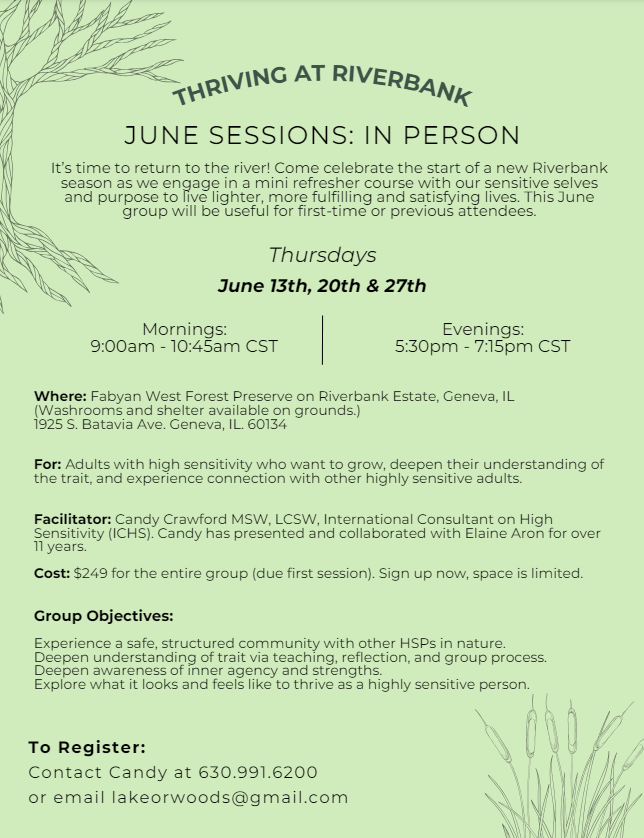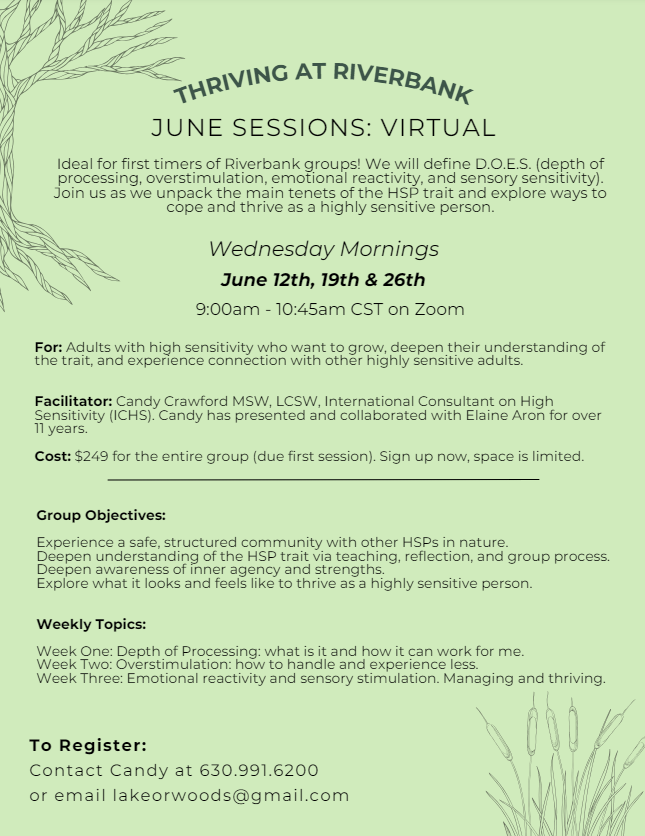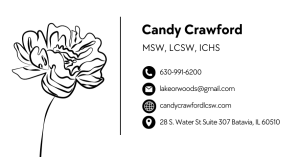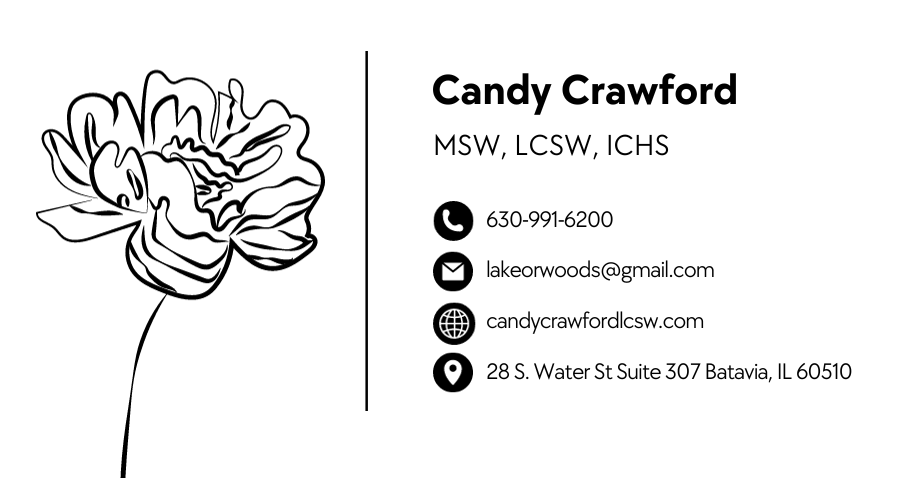Vibrant Days…
Flourishing with Sensory Processing Sensitivity
How to Activate the HSP ‘Boost Effect’

Are highly sensitive people wired to ‘boost’ past others?
Growing up as a sensitive kid, I never got the impression that my sensitivity was a strength. In fact, I was told the opposite: You gotta get over it, you’re too sensitive, you gotta be tough. The adults who told said these things believed them. They thought they were helping me by getting me ready for the “real world.” Sensitivity, they figured, would hold me back.
This bias is so deeply rooted that even the scientists who first studied sensitivity assumed it was a drawback. They expected it to be connected to a nervous, melancholy temperament or to be caused primarily by trauma. Sensitive children, they reasoned, would grow up to have worse outcomes as adults. Many studied sensitivity essentially hoping to cure it.
Today, we know that sensitivity is not caused by trauma; it’s largely in your genes. We know that sensitivity comes with specific gifts. And we know that it’s as normal as any other healthy trait, with roughly 30 percent of people testing as highly sensitive.
But now, science is going a step further. Sensitivity is not just “normal,” it turns out. As my co-author Jenn Granneman and I describe in our book Sensitive, being sensitive may actually be a massive advantage — thanks to something called the sensitive “Boost Effect.”
Do Sensitive People Have an Advantage?
Sensitive people, by definition, are more responsive to their environment. They process information more deeply and respond to it more strongly, which is why sensitive people tend to have strong emotions, think deeply, and notice things that others miss. The same trait means that sensitive people are profoundly affected by their surroundings: They struggle more with stressful environments and benefit more from a supportive one.
Recent research suggests that those positive benefits of a healthy environment may go much further than originally believed. As sensitivity researcher Michael Pluess told me, people who score as highly sensitive get a far bigger boost from a supportive environment, even compared to other people who get the same support. It’s like being sensitive means you are wired to springboard to greater heights — provided you’re given something to bounce off of.
Pluess says that this effect has already been observed in a variety of situations: if given support or resources, sensitive people appear to be better than others at overcoming mental health struggles, improving relationships, and even shifting to a happier mood.
Pluess refers to this as vantage sensitivity, or the idea that being sensitive can be an advantage. My co-author and I refer to it as the sensitive Boost Effect.
What Is the Sensitive ‘Boost Effect’?
The sensitive Boost Effect means that sensitive people get a bigger boost from the same things that would help anyone. For example, we all know that children with a stable home environment tend to get better grades on average. But sensitive children with the same healthy environment might not just get better grades; they’re likely to be at the top of their class.
You can think of the Boost Effect this way: Give a man a fish, he can eat for a day, but give a sensitive man a fish, and the next thing you know, he’s running the whole fish market.
Perhaps the best thing about the Boost Effect, though, is that it’s largely under your control. Although a lot of the scientific literature on sensitivity focuses on children, the Boost Effect appears to be a lifelong ability. That’s great news for sensitive adults, who cannot go back and change the kind of childhood they had. They don’t have to, because they can still curate an environment that activates the Boost Effect today. And doing so can lead to truly transformative changes in your life.
How the the Boost Effect Pays Off for HSPs
Two studies illustrate how powerful the Boost Effect can be. In the first one, led by Pluess himself, researchers offered a treatment program to teenagers with depression. They specifically focused on a badly economically depressed area of the UK, where the teens were much less likely to have had the kind of childhood environment that supports HSPs. Over the course of months, the program did help improve the teens’ depression symptoms on average, just as expected, but not everyone was helped equally.
The reason became clear when researchers gave the teens a sensitivity test: it was the highly sensitive students who got the most benefit out of program. In fact, the HSP teens were much more likely to overcome their depression entirely, and tended to stay depression-free every time the researchers went back to assess them after the program ended. In other words, the program on its own didn’t fix depression; but the program plus being sensitive usually did.
A second study, this one in the U.S., focused on adult married couples at high risk for divorce. Some of the couples were given an relationship skills class in the hopes of improving their marriages, and others were not. Once again, the class did help on average, and couples who received the class were less likely to divorce — and again, not every couple showed the same improvement. But researchers went on to assess everyone for sensitivity, this time by checking their DNA for the genes linked to high sensitivity.
Guess what? Yep, it turned out that couples who had at least one highly sensitive person in them were much more likely to use the relationship class to save their marriage. Not only that, the couples with HSPs actually went on to improve the quality of their relationship — meaning they didn’t just stay together, their marriages actually became happier.
That is the power of the the sensitive Boost Effect. You can think of it this way: teach a man to fish, he can eat for a lifetime, but teach a sensitive man to fish, and the next thing you know, he’s running the whole fish market.
(In fact, the Boost Effect was so strong in the depression study that the authors expressed concern for the least sensitive teens — they got almost no benefit from depression treatment at all. Not only is being “not sensitive” not strong, it appears it may actively hold people back. In other words, it appears that lacking sensitivity is what holds people back, at least in some cases.)
How to Activate the Boost Effect
The Boost Effect is not just useful for overcoming bad things, like depression or divorce. It can also help you actively move toward positive things, like happiness, career success, artistic achievement, or finding a healthy relationship. In fact, when you activate the Boost Effect, it can act as a positive across many areas of your life, lifting you up on a day-to-day basis.
But you do have to activate it. Few of us are blessed with a life where nothing but support and encouragement are handed to us at every turn, so turning on your Boost Effect means cultivating sources of support yourself, as an intentional act. (That’s actually one of the greatest things about the Boost Effect: you have the power to use it, no matter what childhood or circumstances you were handed.)
1. Seek out a mentor
Many HSPs never get a mentor simply because it’s hard to know where to find one. But there’s a good chance you already know someone who would potentially be a good mentor to you. If you’re younger, it might be a particular professor or teacher or older relative who you feel is wise and supportive. If you’re an adult, it might be someone whose work or attitude you admire in your professional field, or whose attitude and experience always impress you. You can simply ask this person if they’ll meet you for coffee and give some advice. (It helps to have a specific goal you need advice on, rather than a vague ask, and to be clear that you’re only asking for an hour over coffee. Vague “can I pick your brain” requests, or time-consuming “let’s collaborate” invites, tend to get turned down.)=
A mentor can be particularly useful for reaching career, business, or creative goals, but mentors can also be an influence on life more generally. Over time, you’ll likely learn all kinds of life advice from them — from how they do their morning routine to the things they do to manage their time or their mental health.
2. Join a mastermind group
One easy alternative to a mentor is joining a mastermind group. A mastermind group is a small group of people — often five or six max — that meet regularly to discuss their goals, encourage each other, and provide accountability. While many mastermind groups are focused mainly on career goals, many others are wide-ranging and support your growth as a whole.
Joining a mastermind group has some big advantages: they are easy to find, more abundant than willing mentors, are usually free to join, and are tailored to your specific needs and goals. Plus, if you can’t find a mastermind group you like, you can start one yourself. (You can start looking for a mastermind group here or learn how to start one here.)
3. Use a coach to make life changes
It’s increasingly common for people to use life coaches to change and improve their lives. Coaches are professionals who help you gain clarity on your needs and goals, identify the obstacles that are holding you back, and dive into the self-work you need to do to make the changes you want. Most coaches are deeply inspirational figures who know how to motivate their clients, not just provide tips. Many will also help you plan out a road map with specific steps to make the changes you want.
4. Take a class or training program with a highly specific focus
As an adult, I often forget that I can still take classes to learn new things. This doesn’t have to be a course at a university or school, although it certainly can be. (I was able to take both fencing lessons and, later, a meditation class via my local university’s continuing education program.) You can find classes of all kinds online, at local arts and cultural institutions, via nonprofits, and at career development centers.
Not all classes are going to activate the Boost Effect, but they do if they support a specific goal you have: a child development class really will make you a better parent, a welding class really will up your sculpture game, and a writing class pays off even for experienced authors. The impact is even greater for HSPs, who appear to do more with new skills and know-how than others do. (This effect is so substantial that, in a 2017 study, highly sensitive infants got more benefit than less-sensitive infants from a training their mothers received before they were even born.)
There are also classes available that are specifically for helping HSPs thrive; we recommend this class from our partner, therapist Julie Bjelland.
5. Start therapy (even if there’s no immediate ‘problem’ to fix)
Anecdotally, multiple therapists have told me that therapy seems to make a bigger difference for HSPs than it does for others. That observation matches the results of the depression study above and other studies on mental health interventions. But therapy isn’t only helpful for specific diagnoses like anxiety, depression, or PTSD. It’s also beneficial as a preventative.
Why? Partly, because an ounce of prevention is worth a pound of cure for anyone, HSP or not. But HSPs specifically may be at a higher risk of anxiety in a harmful environment, but appear to actually be at a lower risk of anxiety when they have a supportive environment. In other words, cultivating sources of positive support now may actually help you become “anxiety resistant” when you eventually run into a struggle.
But that’s science talking. The reality is also just a simple human truth: you need someone who will listen. Someone who will be honest with you. And someone who will help you grow as a person.
The single most powerful thing you can do to activate the Boost Effect is to cultivate a circle of friends who truly encourage and support you. These are people who you feel good just being around, people who are positive about your goals, and (in particular) people who inspire you. Many of us have one or two individuals like this in our lives, but you likely have at least a few friends who are the opposite, too — they get skeptical of your goals, belittle your sensitivity, or just don’t get you. You don’t have to have a friend breakup with these folks, but do start focusing your time on the friends who do encourage you. And if you have an acquaintance you admire, ask if they want to get coffee, or invite them to a small gathering. Seek out the people who build you up. They are your greatest treasure.
Sign Up Today! June IN PERSON & VIRTUAL Sessions Available


What I’m learning:
How Can Listening To Music (and Lyrics) Benefit Highly Sensitive People?
There are songs that play their way into our memory with such determination that one or two opening notes are enough to introduce them. Two syllabic, droning notes (dun dun…dun dun) can make us turn our heads to scan for shark fins. And the opening chord of a favorite song can generate a swell of cheers from fans at a concert. But for certain people, the recognition of music is more than a sensory experience. Highly Sensitive People and music have a relationship that goes soul deep.

Ask a Highly Sensitive Person (HSP) who grew up in the 70’s and 80’s to recall hit songs that evoke the most emotion. Songs like Seasons in the Sun, All by Myself, and Wreck of the Edmund Fitzgerald will probably make the list. And for good reason.
And chances are the HSP will immediately feel the emotions originally attached to those songs just by recalling their titles.
Music does, of course, have a profound effect on all of us – Highly Sensitive or not. It energizes, relaxes, sets the stage, and sets the mood.
It aids in worship, rallies and excites during competitions, and connects us to specific memories and their attached sensory experiences.

Music can also be used as a complementary therapy to manage a variety of developmental, behavioral, and health conditions.
If you’re starting to pick up on a “brain theme” here, your perception is spot on. Everything about music – its organization, its recognition, its emotional impact – is narrated by the biology and physiology of the brain.
You may be hard-pressed to find someone who doesn’t have a personal playlist of favorite music/. Or who isn’t profoundly affected by music. But Highly Sensitive People and music take the brain connection to another level.
Keep in mind that reference to high sensitivity isn’t a distinction between saints and serial killers. It’s a neurological reference to the way 15-20% of the population process and respond to their environment.
They process information deeply (and continuously). They’re easily overstimulated and overwhelmed. They are highly empathetic; and they are highly sensitive to sensory stimulation.
Their brains are like Motel 6: they always have the light on.
Specifically, those areas of the brain that have to do with awareness, emotion, and empathy are more active in Highly Sensitive People. They “light up” on brain scans, as does the mirror neuron system, which enables HSPs to not only understand others’ feelings, but feel them.

So what does this have to do with the relationship between HSPs and music? And how, specifically, can listening to music and lyrics benefit HSPs?
Creativity and high sensitivity go hand-in-hand. People with high sensitivity have a high affinity for the arts, both visual and performing. And creatives of all kinds are often highly sensitive.
For the HSP observing a performance or work of art, the experience is far more than a source of intellectual stimulation or simple appreciation. It’s a portal into the emotional experience of another person.

It is the difference between loving the Post-Impressionist swirls of the sky in Vincent Van Gogh’s Starry Night…and feeling, at a soul level, the artist’s tortured existence.
It’s the welling up of tears every time Don McLean’s tribute song Vincent comes out of nowhere on the radio, seizing your soul and coursing it through the anguish behind every brush stroke.
It’s the difference between loving the surprise of a familiar hit when it plays…and sitting with its emotional impact for days.
Someone with “normal” sensitivity would be touched by a song written about a famous artist who took his own life.
An HSP would never be able to look at a Van Gogh painting or hear McLean’s song without becoming tethered to the artist’s soul.
High sensitivity, especially as it relates to Highly Sensitive People and music or other creative expressions, ignites inevitable communion with others.
And, while that communion isn’t predicated on pathos, the innate proclivity for empathy in the HSP often resonates most profoundly in that frequency.
It’s the ability to understand what so few others understand…and the willingness to allow it to take up residence in one’s heart and mind.
Sound like a lot of “work” for the simple joy of listening to music? Then you’re catching on to the distinction between the sensitivity of the majority and that of the few. Or, more specifically, “low-empathy” and “high-empathy” people.
(Again, we’re talking neurology here, not saints vs. serial killers.)
The brains of both show roughly equal involvement of those areas relating to auditory, emotion, and sensory-motor processing.

Highly Sensitive People also show greater pleasure in listening to music, as evidenced by increased activation in the brain’s reward system.
HSPs who recognize and understand their trait instinctively embrace their need for alone time. Sometimes a blessing, sometimes a curse, but always a necessity for self-care.
While introversion isn’t a defining criterion for high sensitivity, it is far more common than not in the trait. And that can leave the HSP alone and without social connection, regardless of comfort with one’s own company and the need for interval isolation.
What the above brain studies suggest is that music may actually provide the “equivalent” of a social experience because of the empathy it evokes.
And, while the “not-highly-sensitive” friends in the HSP’s circle may not grasp the concept, the HSP’s brain does.

Add in the perks of an activated reward system (think “dopamine cocktail”), and suddenly music becomes a healing benefactor.
All of this brings us full circle to the tendency of HSPs to be easily overstimulated.
Overstimulation and anxiety feel the same to the body. So much to process. So many outside expectations. Too much “threat” from an unsympathetic world. So many fight-or-flight hormones raging through your veins.
It all just gets to be too much.
And, if the anxiety isn’t managed, depression can set in and create its own downward spiral.
What a remarkable – miraculous, even – gift music can be for soothing the spirit of those with high sensitivity! Its ability to calm the nervous system and trigger a reward response is a powerful tool for managing the challenges of high sensitivity.
And, as you dim the lights and play Vincent for the fifth or tenth time, remember, as you bravely commune with those deep emotions…

…this world was never meant for one as beautiful as you.
Dr. Elayne Daniels is an international coach and private-practice psychologist located in Boston. Areas of specialization include eating disorder recovery, body image, and helping Highly Sensitive People thrive.
What I keep watching:
What I’m pondering:
Look at your body.
Look at those arms that have held people
they love. Look at those eyes that have
seen oceans and mountains and big green
trees. Look at those legs that have carried
you through your longest journeys. Look
at your feet that have held you up on your
hardest days. Look at your smile that has
grinned a million times at the moments
that have brought you joy. Look at your
body… not for the curves or textures but
for the moments that this body has given
you. Look at your body. Now what do you
see?
~ @lexyflorentina

